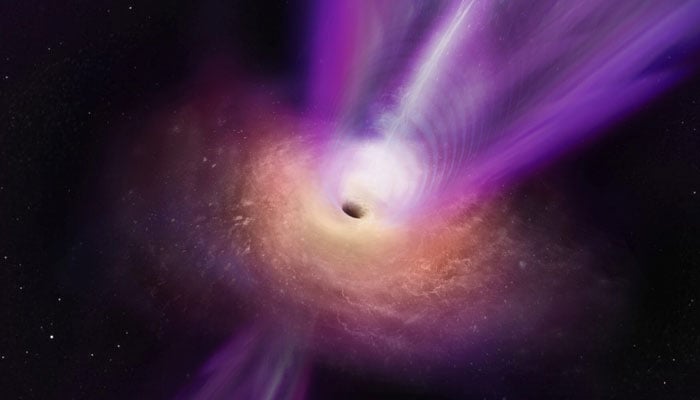Analysis of universe's largest map proves Einstein right
New study findings focus on dark energy accelerating ongoing expansion of universe
November 20, 2024

The largest map of the universe has been analysed by the astronomers discovering that Albert Einstein was right yet again about gravity, as per a series of new studies.
It was found by the analysis that even at colossal scales the force of gravity behaves as predicted by Einstein's theory of general relativity, reported Live Science.
Notably, the analysis looked at nearly 6 million galaxies and quasars spanning 11 billion years of cosmic times.
The findings announced on Tuesday are part of a years-long study of the history of the cosmos focusing upon dark energy, an invisible and enigmatic force that is accelerating the ongoing expansion of the universe.
The researchers used a year of observations by the Dark Energy Spectroscopic Instrument (DESI) at Kitt Peak National Observatory in Arizona, which can capture light from 5,000 galaxies simultaneously.
Gravity is one of the universe's fundamental forces. Einstein's theory linked space, time and gravity. It holds that concentrations of mass and energy curve the structure of space-time, influencing the motion of whatever passes nearby.
"Einstein's theory of general relativity describes the motion of massive objects in a gravitational field that they create. It is one of the most successful physical theories that we have. The discovery of the accelerating universe, however, led to suggestions that maybe general relativity needs to be modified," said University of Michigan cosmologist Dragan Huterer, co-leader of the working group that interpreted the DESI cosmological data.
But the new DESI findings revealed gravity behaving as Einstein foresaw that it would.
The Big Bang event 13.8 billion years ago initiated the universe, and it has been expanding ever since. Scientists in 1998 disclosed that this expansion was actually accelerating, with dark energy as the hypothesised reason.









